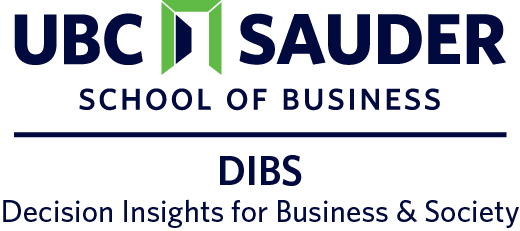The Society for Judgment & Decision Making (SJDM) and European Association for Decision Making (EADM) are organizing regular joint virtual symposia, which have the goal of profiling important work on a topic of general interest to the decision making community, while also strengthening ties between the two societies.
We are pleased to invite you to the fourth such symposium, to be held on January 23, 2025, on the topic of Climate Change. The symposium will take place from 7-9am PST.
Zoom link: https://purdue-edu.zoom.us/j/96647425213?pwd=OrtzXRJ9eB0LAbmyZlxBa1BUzflVZC.1
Schedule
- 07:00 to 07:20am: Helen Fischer – Being Right vs. Knowing when you’re not: Exploring Metacognition in Climate Change.
- 07:20 to 07:40am: Antonia Krefeld-Schwalb – Fostering Sustainable Behavior with Interventions Targeted to Individual Motives.
- 07:40 to 08:00am: Breakout rooms with networking and discussion
- 08:00 to 09:00am: Wändi Bruine de Bruin – Communicating the Climate Crisis? The power of language and framing.
About the Talks
Helen Fischer (IWM Tübingen)
Being Right vs. Knowing when you’re not: Exploring Metacognition in Climate Change.
Abstract: In this talk, I will highlight the role of metacognition—our insight into what we do and do not know—for climate change. In this emerging view on the psychology of climate change, I will introduce recent studies that ask: How good is citizens’ insight into their climate change knowledge? How is that related to climate change misinformation? And how does metacognition relate to beliefs and behavior regarding climate change? Jointly, this literature will help us delve into the interplay of metacognition and climate change, shedding light on its implications for informed decision-making and action.
Antonia Krefeld-Schwalb (Erasmus University)
Fostering Sustainable Behavior with Interventions Targeted to Individual Motives.
Abstract: Behavioral change is an integral part of climate change mitigation and adaptation. However, many interventions that encourage individuals to make more sustainable choices do not lead to the desired behavioral change. To tackle this challenge, we take a step back and focus on understanding the complex motivational structure behind sustainable behaviors. We (i) identified 14 individually relevant motives for sustainable behaviors in 14,262 individual responses using LLM to open-ended questions across the USA, Netherlands and China, (ii) show that these motives can be predicted from demographic variables and individuals’ risk and time preferences, and (iii) test how these insights can be used for designing more efficient behavioral interventions using an online platform for field experimentation that we designed for that purpose (https://sustainability.rsm.nl/demo).
Wändi Bruine de Bruin (University of Southern California)
Communicating the Climate Crisis? The power of language and framing.
Abstract: JDM research suggests that wording can affect people’s judgments and decisions. But could climate change communications be more effective if they used different terminology? In this presentation, I will discuss my work with the United Nations Foundation and IPCC on improving the language of climate change communications. I will also talk about the impact this work has had, and the strategies I think I have learned for creating impact.
SJDM/EADM organizing committee (Gaelle Vallee-Tourangeau, Sudeep Bhatia, Stephen Broomell, and Elena Reutskaja)
